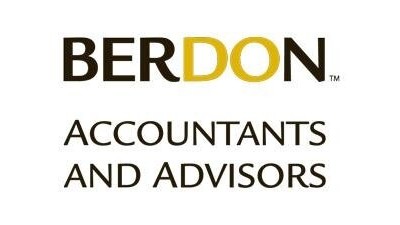How Hotel Owners Can Navigate New York’s Complex Sales And Use Tax Laws

New York State continues to be a major destination for hotel owners, developers and operators. New hotel openings in the next three years will add an estimated 18,960 more rooms to New York City’s inventory alone.
The hospitality industry is a major source of tax revenue for the state of New York. The soon-to-open Legoland amusement park in Orange County, for example, is expected to generate $283M in sales tax and hotel taxes for the county for over 30 years. The ability to generate tax revenue from hotels has made the industry a prime target for tax audits, Berdon LLP Senior Principal Terence Avella said. As tax laws continue to update and become more complex, Avella and Tax Supervisor Michael Gelbtuch keep clients knowledgeable about what purchases are tax exempt.
“Hotels really have exposure on every aspect of their business, both from the sales perspective of offering many services to guests and on the operations side of running a property, and there are many areas that need to be reviewed,” Avella said. “There are so many purchases they make that can be subject to tax.”
Renovations And Repair
Renovations and remodeling are often necessary for hotels to differentiate themselves from competing properties, but determining if sales and use tax is due on those projects can be challenging, Avella said. The determination depends on whether the project is considered a taxable repair and maintenance or an exempt capital improvement.
Generally, a capital improvement is any permanent addition or alteration to real property that substantially adds value to or extends the useful life of real property, like the installation of a new roof on a building, for example.
A repair and maintenance project is any work performed to keep real property in a condition of fitness, efficiency or readiness, or restoring the real property to such condition. An example of repair and maintenance would be repairing a crack in the roof of a building to prevent leaks.
These improvements become complicated to classify in a hotel, which deals with transient occupancy, individual hotel rooms and a diverse selection of amenities from pools to fitness centers.
“There is a difference between renovating a room versus renovating an entire floor or renovating the hotel as a whole," Gelbtuch said. "Typically, if you renovate the entire hotel, the project becomes a capital improvement. However, renovating specific areas or units becomes a gray area. For example, if a hotel replaces the sinks in their suites vs. replacing the sinks in the entire hotel, the taxability becomes somewhat of a gray area. There are many complexities.”
A hotel operator, for instance, can hire a general contractor to install new electricity, plumbing and other improvements throughout the hotel, which would be deemed a capital improvement in New York, Gelbtuch said. The hotel operator would not be required to pay the contractor sales tax on the cost of the construction for an exempt capital improvement project.

There are certain overlooked aspects of a capital improvement project that need to be noted. For example, the purchase and installation of furniture and fixtures are always taxable regardless of whether the project itself qualifies as a capital improvement. Interior design services is another good example.
“When [out-of-state vendors] get involved with the project, there is typically an increase in the likelihood of mistakes being made in determining what is tax exempt and what is not,” Avella said. “Many times, we see our hotel clients issue capital improvement certificates without going into the details of what they are doing during the construction. Therefore, when you issue that certification, the seller won't charge sales tax. But then there are some hotel clients that don’t issue these exempt certificates, and then they are potentially overpaying.”
Other examples where sales tax errors frequently occur on hotel projects include interior design services, painting and flooring. The scale of the project can help determine its category.
For example, if all walls of the property are demolished and replaced with sheetrock and then painted, it would typically constitute an exempt capital improvement. But any walls that are stripped of the original paint or wallpaper and then repainted are typically deemed a taxable repair and maintenance outside of the overall capital improvement project.
Technology
Software, like managing booking requests or handling vendor invoices, can also be tax exempt in certain instances. Pre-written, or “off-the-shelf,” software is typically subject to sales tax, while custom software designed and developed to the specification of a particular purchaser is usually exempt.
Because most software is purchased online as a service, without using a physical CD, taxing authorities have updated sales tax rules to adapt to the technological advancements of software sold through intangible mediums. Taxpayers, including hotels, need to keep up with these changes and the rules associated with them.
Tax law, especially for hotel owners, remains a complicated topic with several gray areas, Gelbtuch said. By working with a tax specialist, operators can make sure they are not overpaying sales taxes or increasing their risk for an unfavorable audit adjustment.
This feature was produced in collaboration between Bisnow Branded Content and Berdon LLP. Bisnow news staff was not involved in the production of this content.

